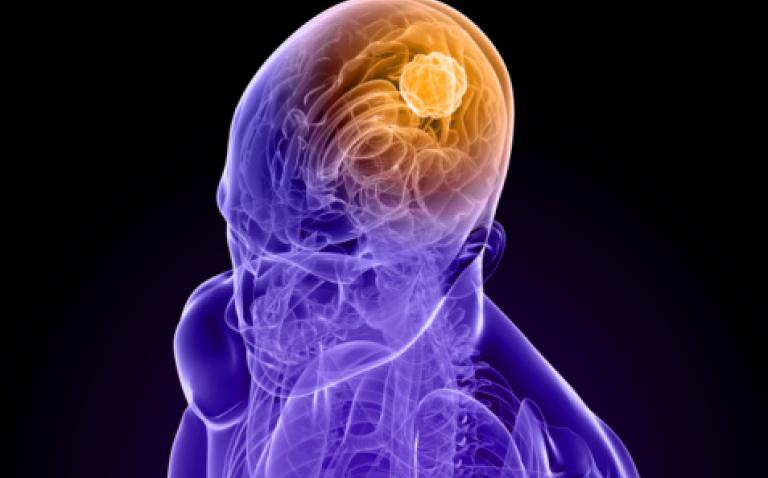Notable UK government and healthcare leaders, Gamma Knife® radiosurgery experts and representatives of the National Hospital for Neurology and Neurosurgery (NHNN) gathered on April 23 to observe the official opening of The Gamma Knife Centre at Queen Square Radiosurgery Centre (QSRC) by the Rt Hon John Bercow, Speaker of the House of Commons.
The new centre – which treated its first patients last fall using its Leksell Gamma Knife® Perfexion™ system from Elekta – is the UK’s sixth operational Gamma Knife centre.
Gamma Knife radiosurgery is a gentler alternative to traditional brain surgery for illnesses such as metastatic disease, which is cancer that has travelled to the brain from elsewhere in the body. With pinpoint accuracy, the system delivers up to thousands of low-intensity radiation beams to one or more targets in a single session. Perfexion provides even greater speed and ease of use than previous models.
The Gamma Knife Centre provides a high quality radiosurgical service for National Health Service (NHS) and private patients, and is a partnership between the NHNN, part of the University College London Hospitals (UCLH) NHS Foundation Trust and Medical Equipment Solutions Limited.
The opening program featured several presentations by leading clinicians and Elekta officials who were welcomed by Sir Robert Naylor, Chief Executive, UCLH key government, NHNN, clinical and Elekta officials:
- Mr. Neil Kitchen, NHNN neurosurgeon; Dr. Naomi Fersht, Consultant Clinical Oncology at University College Hospital and the National Hospital for Neurology and Neurosurgery; Dr. Hans Rolf Jäger, Reader in Neuroradiology at UCL Institute of Neurology and Honorary Consultant Neuroradiologist at UCLH Trust; Ian Paddick, Chief Physicist, NHNN Gamma Knife Centre: Queen Square Gamma Knife Research Beginnings
- Dr. Dan Leksell, Senior Advisor to Elekta AB: From Inception to Perfexion
- Mr. Andras Kemeny, Director of the National Centre for Stereotactic Radiosurgery: The Clinical Role of Gamma Knife Radiosurgery in the U.K.
- Dr. Douglas Kondziolka, Vice chair of Clinical Research and Director of Advanced Radiosurgery, Department of Neurosurgery, NYU Langone Medical Center: How Novel Research Ideas in Gamma Knife Radiosurgery Changed both Neurosurgery and Radiation Oncology
NHNN reinforces focus on neurological disorders with Perfexion
NHNN’s acquisition of its new Elekta radiosurgery technology supports the UK government’s efforts to improve access to advanced clinical techniques and will boost research and clinical efforts on neurological disorders. The centre has a collaborative relationship with Elekta.
“In terms of research, the addition of Gamma Knife will enable assessment and evaluation of a range of treatment modalities for brain disorders, particularly for brain metastases,” Mr. Kitchen says. “Clinically, Gamma Knife is a well accepted and proven technology that is a gentle and effective option to standard treatments for brain metastases and other brain disorders that can prolong and improve patients’ quality of life. Among radiosurgery technology options, after detailed evaluation, we considered Perfexion to be the gold standard that would meet NHNN’s clinical and research requirements. In addition, we determined that Perfexion offered accuracy and patient throughput advantages over linac-based radiosurgery.”
A comprehensive and novel research program using Leksell Gamma Knife Perfexion is planned, focusing on addressing many specific research questions and subjects. The findings and best practices of this program will be shared with other centres internationally, he adds.
Established in 1860, NHNN is the UK’s largest dedicated neurological and neurosurgical hospital, treating over 6,000 inpatients, 120,000 outpatients and 8,000 day cases each year. NHNN provides comprehensive services for diagnosis, treatment and care of all conditions that affect the brain, spinal cord, peripheral nervous system and muscles.
It offers approximately 200 outpatient clinics each week, covering all aspects of neurology, neurosurgery, neuropsychology and neuro-rehabilitation, in addition to many specialist units, including dementia, epilepsy, multiple sclerosis and stroke. NHNN is part of the University College London Hospitals Foundation Trust, and closely associated in its work with the UCL Institute of Neurology, Queen Square, a major international centre for research and training, with UCL ranked fourth best university in the world.










